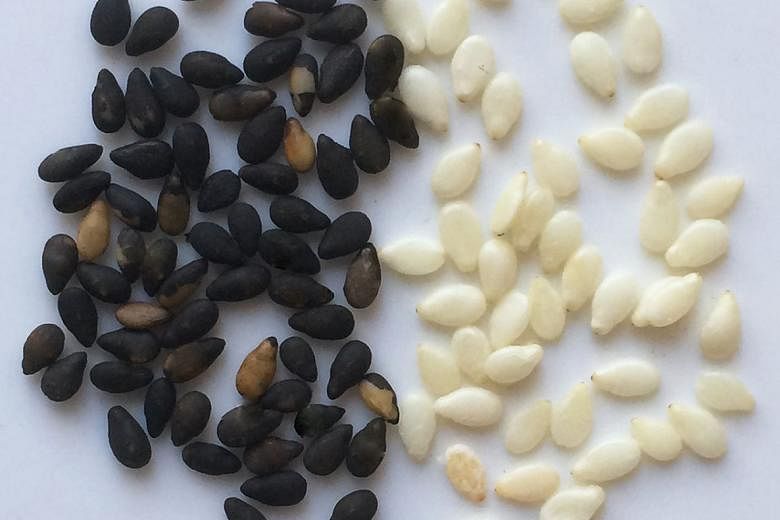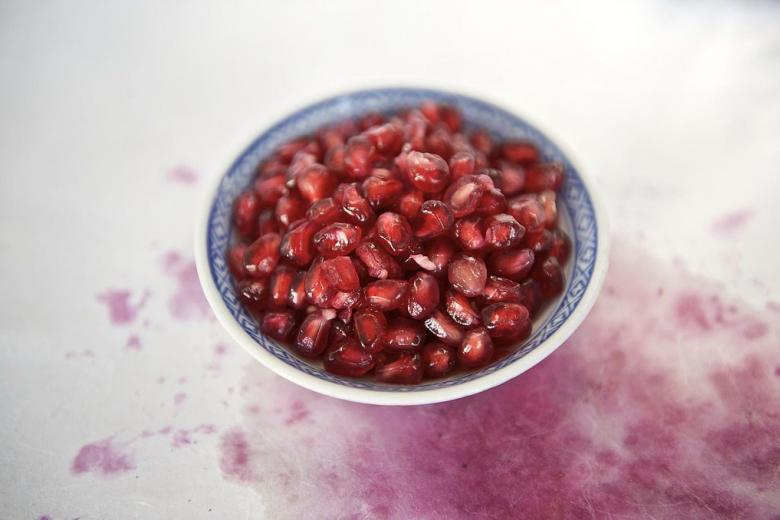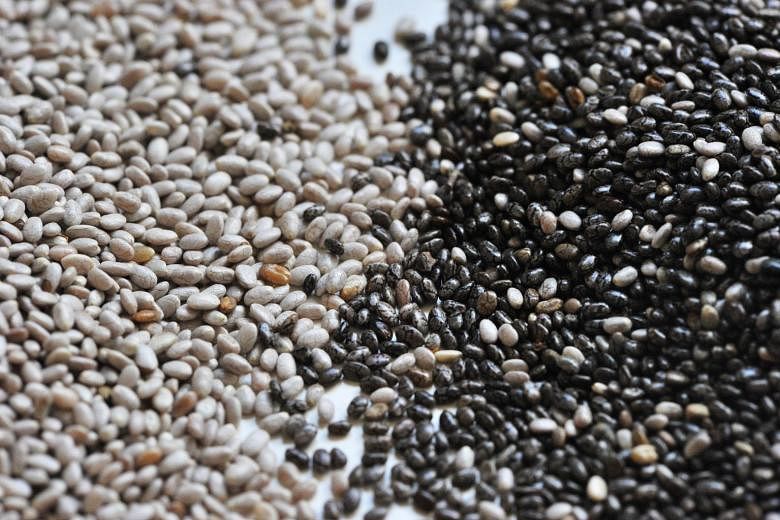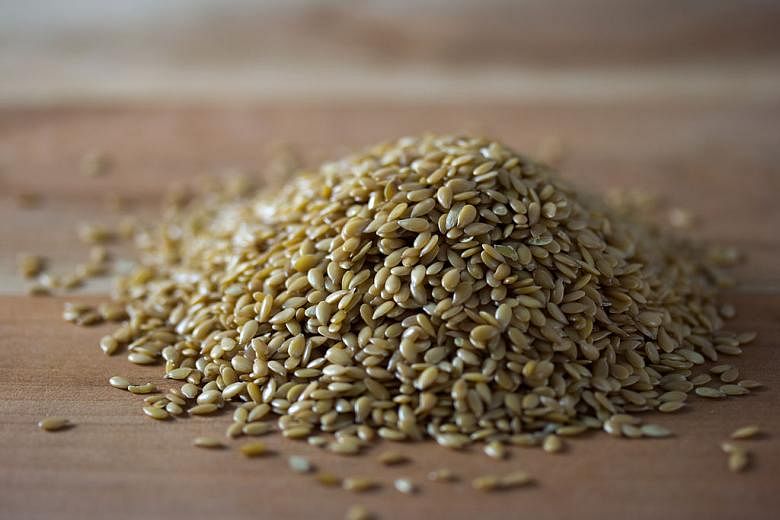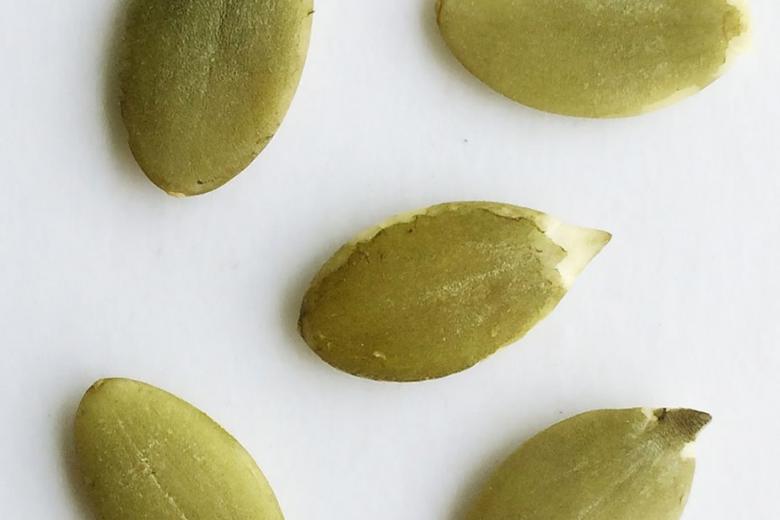(SHAPE SINGAPORE) - You would be surprised to find out how much the addition of healthy seeds to your diet can benefit you. Small and mighty, seeds are packed with an abundance of nutrients and healthy fats. Just a sprinkle of these seven types of seeds is enough to improve your health.

Flax seeds
Jam-packed with antioxidants, flax seeds are rich in alpha-linolenic acid (ALA), a type of omega-3 fatty acid. ALA can improve cardiovascular health and a study published in an international journal of Biochemistry and Molecular Biology, Biochimie, revealed that ALA has the potential to lower the risk of stroke. Flax seeds also contain more lignans than any other plant foods. Lignan is a type of plant compound, which is believed to be able to fight cancer by preventing the growth of tumour cells. A popular way to consume flax seeds is to bake them into muffins or cookies. You can also go for healthier options like sprinkling them over your salads or fruits.

Chia seeds
Often classified as a superfood, chia seeds are an excellent source of omega-3 fatty acids to keep your cholesterol levels in check. And don't underestimate these tiny seeds, they are able to absorb up to 10 times their weight in water. The high water content and fibre in chia seeds will also help you to feel full for longer. While chia seeds may not have much taste on their own, you can add a dash of it to your favourite fruits, smoothies, puddings (the possibilities are endless, really) to jazz up your foods and make them healthier. Find out how you can eat chia seeds in five different ways.

Sesame seeds
These crunchy seeds have a nutty aroma and are often found on bagels, hamburger buns and sushi rolls. While sesame seeds are not in the limelight as much as their counterparts, they are in no way inferior. They are nutrient-dense and contain a wide array of beneficial compounds like iron, zinc, copper and vitamins. According to a study published in the Journal of Medicinal Food in 2016, sesame seeds are able to increase the capacity of antioxidants and reduce oxidative stress markers among individuals.

Sunflower seeds
For those who are allergic to nuts, sunflower seeds can be a good substitute. These crunchy and nutty seeds are versatile and can be easily added into foods like yogurt and salad. You can even have them on their own as a low-carb snack. Rich in vitamin E and fatty acids, they are also good for your skin. A study by Texas A&M University found that dogs supplemented with sunflower seeds saw improvements in their skin and hair coat, and researchers believe that humans can reap the same benefits from the consumption of sunflower seeds. But be careful when you are picking out sunflower seeds as commercialised ones are usually heavily laden with sodium to enhance their flavours.

Pomegranate seeds
A great way to sweeten up your foods without the calories, pomegranate seeds are rich in vitamin C, potassium and fibre. Other than possessing anti-carcinogenic effects, a surprising benefit of pomegranate is that it is able to improve memory. A study published in the journal Evidence-based Complementary and Alternative Medicine revealed that participants who consumed pomegranate over a period of four weeks performed better in verbal and visual memory tasks. Add pomegranate seeds to the list of brain foods you should be eating.

Pumpkin seeds
Known as a rich source of magnesium, two tablespoons of pumpkin seeds contain about 25 per cent of the daily recommended dietary allowance. It is also exceptionally high in zinc to boost your body's immune system. Pumpkin seeds are also said to be able to induce better sleep due to the presence of the amino acid tryptophan. A study published in the journal Nutritional Neuroscience suggests that tryptophan consumed with carbohydrate is comparable to pharmaceutical grade tryptophan, which can help you fall asleep more quickly.

Quinoa
While quinoa often stands in for grains, it is in fact a type of seed. A popular superfood, its myriad health benefits like being rich in protein and antioxidants should come as no surprise. One of the reasons why it is a better alternative to white rice is its low glycemic index, meaning that it will not spike your blood sugar level quickly to stimulate hunger and contribute to weight gain. The versatility of quinoa also makes it easy to incorporate into your diet.
